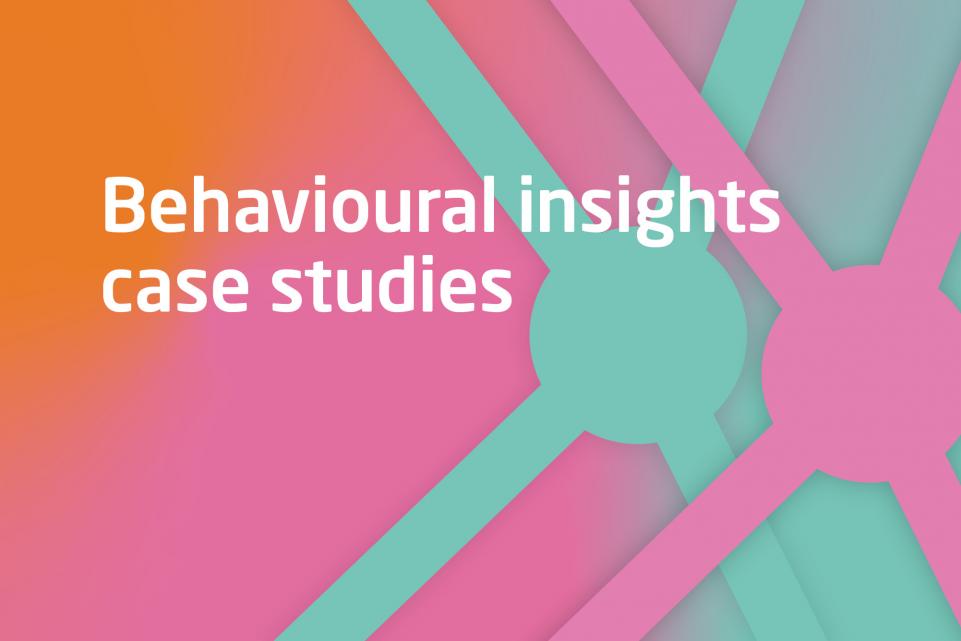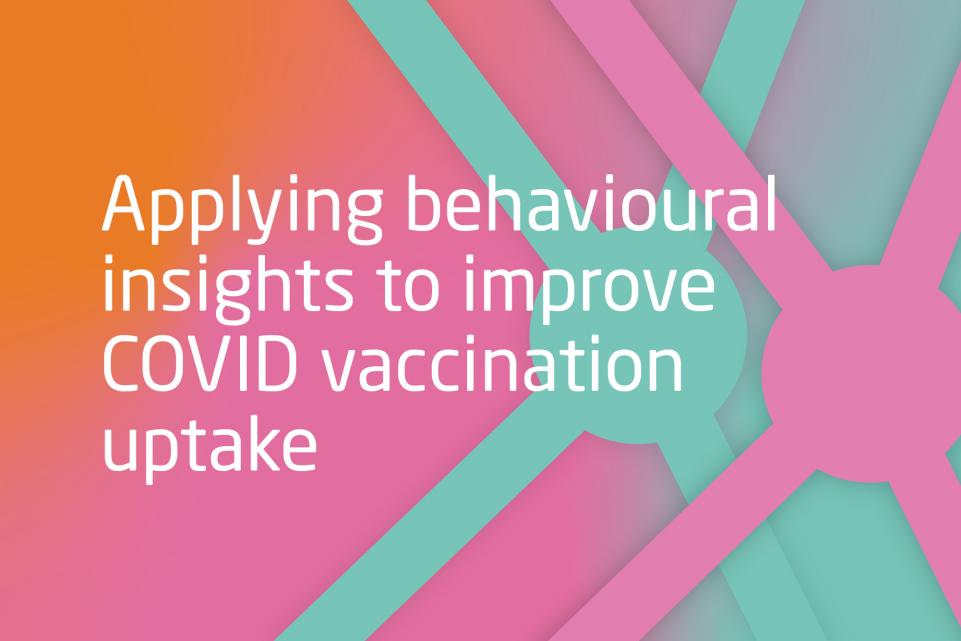Ensuring residents take their second vaccine dose could be a challenge with which councils can support PHE and the NHS. This could be especially the case if news on vaccine efficacy and new strains undermines the perceived value of the second jab.
If residents have obtained the first dose we can assume that they have some positive attitudes towards vaccination and an intention to get vaccinated. For this reason, it is likely that an effective strategy will focus on encouraging commitment and making it as easy as possible to get vaccinated by removing physical or logistical barriers.
We list some behavioural insights that draw on previous research on medical adherence and maintaining commitments.
Behavioural insights
- Encourage people to plan their second vaccine dose
- Behavioural insight: Implementation intentions and planning. Encouraging people to make plans (specifying the when, where and how of an action) makes it more likely that they will follow through with it (Milkman et al., 2011).
- Potential application: Invite people to schedule their second vaccination dose at vaccination centers or clinics when they get their first jab. Provide information leaflets with prompts that can help people plan their second vaccination.
- Prompt people to set the second vaccine dose as their goal
- Behavioural insight: Prompting people to set goals makes it more likely that they will achieve them (Gollwitzer, 2011)
- Potential application: Frame the first vaccine dose as an intermediate step and the second dose as the last step towards immunisation. This can be reinforced using a visual timeline which highlights the second dose as the main goal or by using the term ‘final vaccine dose’ when referring to the second dose. A second application is to frame vaccine uptake as a community goal. This would enable councils and local areas to use vaccination percentages to build social norms. It would also enable councils to frame and present vaccinations in a similar way to achieving charitable giving. For example it has been shown that charitable giving increases near the end of an appeal when the end is in sight.
- Send out reminders to people that are due for their second dose.
- Behavioural insight: Reminders are effective at getting people to vaccinate, especially if they come from a trusted source (Brewer et al., 2017).
- Potential application: Contact people with timely reminders (SMS messages, phone calls, emails). Use a trusted source to send out reminders.
- Frame the second vaccine dose as the default option
- Behavioural insight: Setting defaults is an effective nudge, because people tend to stick to the status quo.
- Potential application: When receiving their first vaccine dose, health providers can frame getting the second vaccine as the default option. In practice, they could do this by making an announcement that assumes the patient intends to get the second dose (Brewer et al., 2017).
- Use commitment devices to ensure that people go through with the second jab
- Behavioural insight: Using public or private commitment increases the likelihood that people will go through with an action.
- Potential application: Getting people to sign to commit to their appointment, using an SMS reminder and confirmation text, or using a public commitment, for example, using a space in a church or other faith based building where people have committed to registering for the vaccine could be a useful tool. This could also serve as building a social norm or injunctive norm which could be powerful with specific groups.
Sources
- Using implementation intentions prompts to enhance influenza vaccination rates (Milkman et al., 2011)
- Goal achievement: the role of intentions (Gollwitzer, 2011)
- Increasing vaccination: putting psychological science into action (Brewer et al., 2017)
Does price matter in charitable giving? Evidence from a large-scale natural field experiment
Featured pages
Three-step guide to encourage COVID-19 vaccinations
Working with The Behaviouralist we have developed a three-step guide to help councils.

COVID-19: Behavioural insights case studies
A series of case studies showing how councils are using behaviour change techniques to increase vaccine uptake and COVID-19 regulation adherence.

Applying behavioural insights to improve COVID vaccination uptake: a guide for councils
This publication focuses on the work councils can undertake to improve vaccine uptake.

